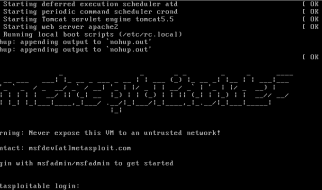Whether you?ve been tasked with ordering custom printed t shirts for an organization, upcoming event, or you are starting your own t shirt line, this article will help you make an informed decision and eliminate potential mistakes and expense.

Depending on the quality and number of shirts required, heat transfers or ?heat applied film? can be more economical than screen or even direct to garment printing. , screen and direct to garment boast huge value in speed and scale.
Below we will explore their differences, advantages, and disadvantages to help you get the best results for your project.
The team at Clash Graphics compiled this guide to help you determine how to get the best options for custom printed shirts, and how to get it at the greatest value.
Screen Printing T Shirts
Also known as silkscreening, this process involves applying ink or paint to the shirt using a prepared screen. This method (in some form) has been in use for more than a thousand years.

With this process, each color in your design will require a different screen, increasing the initial cost. However, since this process works like a stencil, the higher quantity of shirts you order, the lower the unit price will be.
Because the media is transferred to and permeates into the fabric, your design will last much longer than that of a heat transfer. Take a look at some of the advantages and disadvantages of this process.
Advantages:
- Colors used in screen printing are vibrant
- High quality image
- Long lasting results
- Cost effective for large quantity orders
Disadvantages:
- Setup costs are high when compared to other methods
- Most printing companies will have require a minimum quantity order
- Multiple colors require multiple screens, adding to the initial cost
- Small quantities can be very expensive
Setup costs for this method are relatively high. For larger quantity orders, screen printing is ultimately the better option for its speed and efficiency. For lower quantity orders, the cost (in this case) may not justify the means.
T Shirt Heat Transfers
There are two primary methods utilized for heat transfers. The first involves using a heat press to transfer your custom vinyl cut out designs onto the shirt. The second uses specialized ink to print the design onto transfer paper, which is then placed on the shirt and heat pressed to the fabric.

Here are a few of the advantages and disadvantages of using heat transfer to create a custom shirt or garment
Advantages:
- Different shirts in the same order can be customized
- Designs with multiple colors are easy to execute
- Complicated designs can be easily transferred
- Great option and extremely cost effective for small quantity orders
Disadvantages:
- The design will fade over time
- The design will likely crack after several runs in the dryer
- This method?s results won?t last as long as screen printing or DTG (direct to garment)
- Heat sensitive fabrics cannot be used
- If there is shrinkage (in the shirt) after washing and drying, the design will likely have wrinkles or a warped appearance
If your job is a small one which requires multiple colors or customized shirts, heat transfer may be the option for you.
Direct to Garment (DTG) T Shirt Printing
DTG printing is ink jet technology and works very similarly to the way an inkjet printer does. This technique uses specialized water-based ink which is absorbed directly by the fibers of the material.

This process allows images to be printed in greater detail than screen printing, and there?s no limit to the amount of colors you can use.
For those working with limited resources, and in need of smaller quantities, DTG offers excellent results without heavy setup costs.
For low quantity five color orders, the prepping, printing, and curing process for direct to garment takes minutes. When compared to screen printing, the same job would require hours.
Outlined here are some benefits and drawbacks of using DTG for your next custom T-shirt printing project.
Advantages:
- Full color high detail printing
- The finished product has a professional appearance
- This method preserves the soft feel of the garment
- One-off or single shirts can be produced easily
- Low cost per printed unit
Disadvantages:
- When compared to screen printing (for larger quantities) DTG is slow.
T Shirt Quality, Color, and Design
The quality, color, and custom design of the t shirts you order will have a major impact on how much your project will cost. A single color print on a basic white t shirt is the most inexpensive option, and prices increase from this baseline dependent upon the projects? requirements.
Depending on what you are promoting, celebrating, or selling, the quality of the shirt itself will play a large roll in how the end user or customer will treat and use it. You can have the most incredible and vibrant print, but if it?s printed on a flimsy or cheap shirt, you risk losing its intended impact.
Varied T Shirt Printing Methods for Your Project
For screen printing, the larger the quantity, the lower the unit price will be. Taking this into consideration, the following combination of printing methods is recommended for events and projects requiring large quantities:
Heat Transfers or DTG usage examples:
- Security Staff shirts
- Event Staff shirts
- Entertainment events
- Brand merchandise
Screen Printing for:
- Attendees and guests
- Quick turnaround
Watch how screen printing compares with the heat press process:
Shirts for Smaller Groups:
In the case of small groups or gatherings looking for the best price, purchasing the shirts separately and having them embellished with heat transfers can be a more economical option. DTG is also popular for its longer-lasting, visually appealing results.
Watch the direct to garment process:
Quality Printed Custom T Shirts Make an Impact
The shirts you acquire for your clothing line or event will not only make an impression, in many cases they will be kept as treasured mementos and worn on occasion to relive a cherished memory.
It is worth noting that a large portion of the cost involved is associated with the shirt itself. Shirt quality, size, and color will all have a direct impact on the overall bottom line.
Take your time when selecting the shirt type and color (we recommend having a copy of your design to see it against the shirts you are considering).
Once you have chosen the best printing process for your custom printed shirts, get several bids. Different print shops may have specific or limited equipment that may not allow them to be versatile when attending your needs.
Find a printing company that is flexible, and has the equipment necessary to accommodate your custom t shirt project.
Source(s):https://heatpressguide.com/types-t-shirt-printing-methods/https://en.wikipedia.org/wiki/Screen_printinghttps://www.hamblyscreenprints.com/heat-transfer-vs-silk-screen-printing/https://www.youtube.com/watch?v=O_jkNM4gFeohttps://www.impressionsmagazine.com/digital-decorating/dtg/dtg-vs-screen-printing/https://www.printful.com/blog/printful-101/dtg-vs-screen-printing/
Clash Graphics Print Shop Atlanta Flyer Printing
2233 Peachtree Rd NE Ste 202 Atlanta, GA 30309(678) 235?3464
To view the original version on Clash Graphics, visit: http://www.clashgraphics.com/printing-tips/screen-printing-heat-transfer-direct-to-garment-custom-t-shirts/

